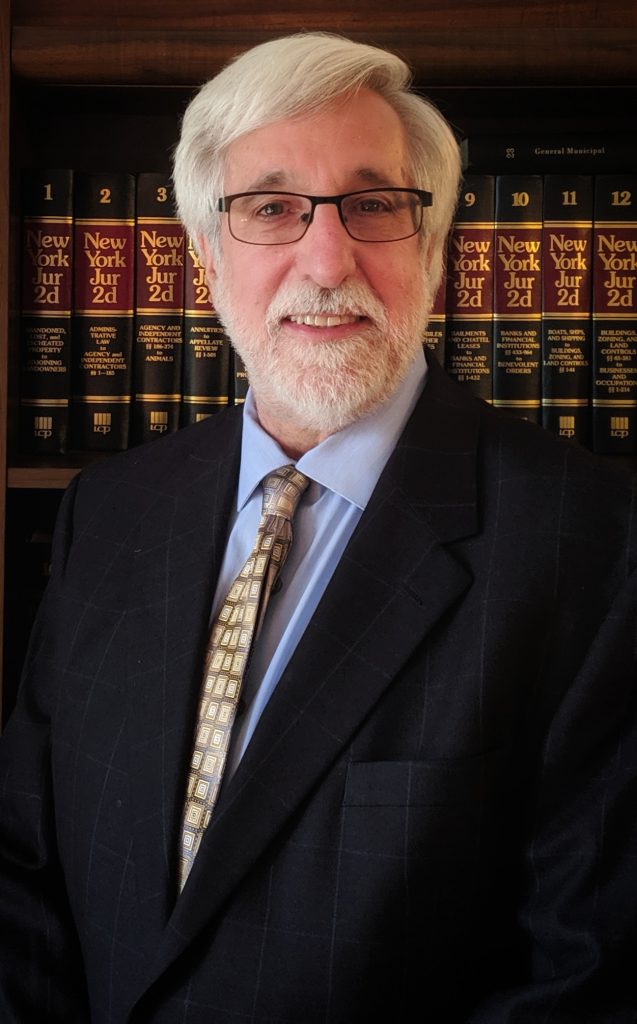
Peter Orville is the Democratic and Working Families candidate for Vestal’s town justice seat. He holds a law degree from Syracuse University and has practiced law for roughly 35 years. He currently practices private law and is an adjunct lecturer at Binghamton University.
Why are you running for your position? What experiences and perspectives do you bring to the table that will help make Vestal a better town?
“My legal experience, community involvement and [Binghamton] University teaching experience give me the tools to be an excellent and fair-minded town justice. I have been a practicing attorney here for 35 years and have built a successful and well-respected law practice. I have helped thousands of people, businesses and family farmers with serious debt issues. I have also represented thousands of individuals charged with a variety of crimes. I have taken dozens of cases to trial, including murder trials and a federal death penalty trial. I have served as a director for many community organizations, including the SOS Shelter, now RISE-NY, the Urban League, the Bar Association, Legal Services, the Homeless Coalition and New York State Association of Criminal Defense Lawyers. I have a good understanding of the issues concerning BU students. I currently teach Mock Trial in the political science department, and over the years have taught many other courses at BU.”
In your opinion, what is the most pressing issue in Vestal and why?
“Judicial candidates are restricted on what they can speak about, so I’ll say what I consider the most pressing issues in the Vestal Town Court. The Vestal Town Court handles all misdemeanor, violation and traffic cases occurring in the Town of Vestal, including those that take place on the BU campus. The Court also handles evictions and small claims cases. The Court is one of the busiest in Broome County, and there are often long delays. I believe these delays can be drastically reduced. The Vestal Town Court can be a place where all members of our community know they can achieve justice and will be treated with fairness and respect. Everyone coming to court should feel they have been fully heard and that their case received a just result. Those who know me as a lawyer, teacher or community member know I will strive to make that happen.”
How do you envision engaging with the community and addressing the concerns they may have? More specifically, what would you do to engage Binghamton University students in these community issues?
“I am comfortable speaking with students about their concerns and plan on continuing to interact with BU students in my classes as well as in other professors’ classes and before student groups and at campus events. Since 1985, I have taught criminal justice courses at BU, including Mock Trial, Issues in Criminal Justice, Substance Abuse Policy, Criminal Corrections, Civil Rights, Juvenile Justice, Criminal Justice Policy [and] Theories of Criminal Behavior. Also, [I have taught] business courses at BU and at SUNY Broome. Students often don’t realize that if they are accused of criminal behavior, even if it didn’t occur on campus, that they can not only be charged with a crime in court, but they can be charged within the campus judicial system. Even if they are exonerated in their criminal case, they can still face stiff penalties, including expulsion or suspension from school, getting kicked out of their campus housing or getting probation.”
What role could you play in lessening the Broome County incarceration rate?
“New York state recently passed sweeping changes to the criminal justice system that will result in a dramatic decrease in the number of people who are sent to jail pending the resolution of their cases. The new law will end money bail as it currently exists and will guarantee pretrial release for a majority of criminal charges. These changes become effective Jan. 1, 2020. No judges are currently operating under these new laws, and all will have to adjust their procedures, especially for setting bail. Currently Broome County has one of the highest incarceration rates of non-convicted inmates. This is not good for the inmate and it is not good for the community. As town justice, I will follow the law itself as well as the spirit of the law which seeks to make the incarceration of people who have not yet been convicted the rare case, not the norm.”


